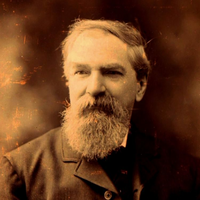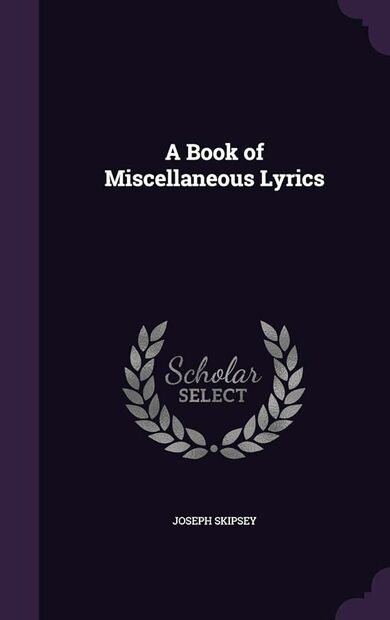I THANK my God I ever lived to see the blessed day,
When the spirit’s immortality to me is rendered clear;
Not by a logic might be made some other tune to play,
But by a flash of inner light too keen for doubt to bear.
Long, long can death, be death indeed, I asked 'mid doubts
and fears;
Long vainly groped in darkness for the jewels I had lost;
Long listened for an answer to the quest expressed in tears,
And only found what to the heart a bitterer struggle cost.
Oft in the visions of the night I saw their golden locks,
I kiss’d their eyes as violets sweet when March with
boisterous breath,
The lordly oak itself—nay more, the lordly steeple rocks,
And ever as the morn arose I found them fast in death.
Then said I—If the “be all” and the “end all” of this
strife,
Be but to furnish coronals the temples to adorn
Of life’s imperious enemy, then, death, and not for life,
Should be the boon solicited whene’er a babe is born.
Far better man had never been if in a circle he
Must travel till the little hour of mortal life is ran,
To find when life’s dark riddle’s read he then must cease
to be,
And the end of all his trouble is the end where he began.
To labour in a night on which the sun will never rise—
To sweat and groan without a hope shall end the bitter
curse,
Save in a dissolution which shall only close our eyes
On all we love and cherish—all?—what destiny were
worse?
Not worse were e’en the lot of those the Danaides of yore,
Condemn’d the hole-fill’d tanks to fill from which the
waters gushed
As fast as they the fluid in pour’d or could the fluid in
pour,
And left them only for their pains a heart by anguish
crush’d.
Not worse to be like Ixion doom’d on a wheel to spin,
Transfix’d on which the victim sad arrived at every round,
Just where he did the weary, dizzy, dreary round begin
Which he—the sore confounded—served the deeper to
confound.
Not worse to be like Sisyphus, destined up a high hill,
With many an effort, many a pang still to uproll a rock
Which when the goal was all but won, despite an iron will,
Re-bounded in a way that made his labours vast, a mock.
Not worse to be like these, for these amid their night of pain
Had intervals of hope that would the darkest hour illume,
And present loss when viewed aright becomes the future’s
gain,
And gloom that’s past to glory turns to gild the present
gloom.
But what avails to charm the soul who loves and toils—
then learns
That not a vestige of his ME can pass beyond the grave?
That all we love and cherish sink,—when dust to dust
returns,—
And with them sink to rise no more the soul in Lethe’s
wave?
In vain to point the present, what can the present yield,
Except what proves a mock, and still the heart with
sorrow fills;
And without the charm a future life affords, without a shield
The soul is left to battle with the worst of human ills.
In vain to point the past, in vain will not its sheen arise
Upon the mind about to be in death’s dark cradle rock’d,
To keener make the thought that when the vital sparklet
flies,
Lock’d lies the spirit in the bonds in which the sense is
lock’d.
To die and be no more is more than we can think, without
An effort such as rends the heart or petrifies the man;
And when the soul has once began to tread the plain of
doubt,
The valley of despair is reached before we halt, or can.
Thus felt I till the truth was found by patient labour sought,
—By labour and a spirit framed to brook the world’s
harsh scorn;
When gilded by its sheen a soul was mine with rapture
fraught,
And may be yours who seek aright the truths I sought
to learn.


